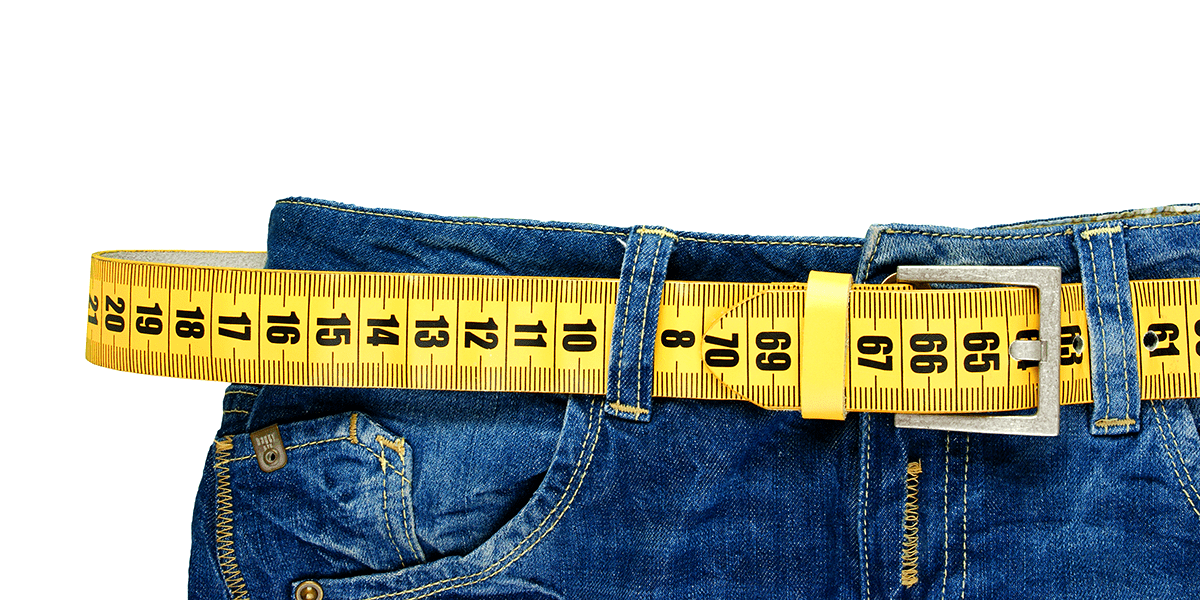Personal trainer, health activist and regular FitPro LIVE speaker Sam Feltham offers FitPro his take on why the word ‘consume’ still holds some ambiguity and shares his radical views on fat storage.
In November 2013 the Institute of Fiscal Studies published a report called Gluttony in England? Long-term change in diet. In that report, it noted that over the past 30 years total calories purchased in the UK have decreased by 22.6% and asked the question on the tip of all our tongues: “If calories are declining, why is weight increasing?” This finding was supported by the Institute of Economic Affairs in a report published in August 2014 called The Fat Lie, which found calorie consumption had also fallen by 21% since 1974. It seems that Britain has been eating less and gaining weight. How can this be, though, when we know that if you consume more calories than you expend, you’ll gain weight? Well, to understand this, we have to look at how biological systems work in regard to growth.
Girls, on average, will have 6% more body fat than boys going into puberty and, when they come out the other side as women, they will have on average 50% more body fat than men – not because they have simply consumed more calories but because their physiology has naturally driven them to store more body fat. For me, this is the crux of the matter and brings me to what I call the worst case of baby duck syndrome in the history of the human race. Baby duck syndrome – or an imprinted idea – is the psychological concept that the first thing you come across is the one you stick with. Just like a baby duck that spots a different animal when it comes out of its egg and thinks that’s its mother. The imprinted idea in this case is the phrase, if you consume more calories than you expend, you’ll gain weight.
For me, ‘consume’ is such an ambiguous and inappropriate word to use and ‘expend’ insinuates a need to actively expend energy. A more appropriate statement would be that if you store more calories in your fat tissue than you lose, you’ll accumulate more body fat. ‘Store’ and ‘fat tissue’ are the most operative words there and it’s a rather obvious observation to make about someone who is becoming fatter. This more appropriate statement allows us to ask the question, why are you storing more body fat than you’re losing? Is it because of the total calories you consumed, which have fallen over the past 30 years in the UK, or is it because of a biochemical stimulus that makes your fat tissue grow?
You may now be thinking, what is this mystical biochemical stimulus you speak of? Well, ever since the mid 20th century, every biochemistry and medical textbook that writes about the regulation of a fat cell has the science but, when it comes to obesity and weight gain, it seems to be completely ignored. Here are a few quotes from some textbooks used in medical schools and by many doctors on a day-to-day basis that may give us a clue:
“The overall action of insulin on the adipocyte [fat cell] is to stimulate fat storage and inhibit mobilisation [fat burning].” Endocrinology: An Integrated Approach
“Insulin not only promotes fat storage but it also restrains fat mobilization [fat burning].” Diabetes Mellitus: A Fundamental and Clinical Text
“High circulating insulin levels inhibit adipose tissue lipolysis [fat breakdown] and stimulate reesterification [fat storage].” Principles and Practice of Endocrinology and Metabolism, Page 1439
Here I must clarify that insulin is not the only hormone or biochemical reaction involved in this biochemical balance that is body fat regulation. There are others that play a major role and, in reality, the body works as one so every biochemical reaction is involved in some way. The other major players are leptin (a satiety hormone that is intertwined with the brain), cortisol (the stress hormone) and our circadian rhythm, which is the body’s 24-hour cycle of hormone secretion. My bottom line here is that this slimming business is not an energy balance issue but a biochemical balance issue. This is shown in that over the past 30 years calorie consumption has decreased while our weight has increased, which seems to superficially defy physics. At the same time though, according to the Diabetes UK report State of the Nation in 2012, type II diabetes, the type associated with insulin resistance, has increased to 2.5 million people and is set to double over the next 10 years with another seven million at high risk, which follows biochemistry. It’s not that biochemistry defies physics – the laws of thermodynamics always remain true – but that biochemistry leads and physics follows. Although we are eating less as a nation, we are becoming more insulin resistant due to high carb, low fat, fake food diets and, as a consequence, we are storing more body fat and becoming less healthy.
Watch Sam Feltham’s video: ‘Do calories count’ here:
To find out more about the relatively simple science of slimming, you can find my book, Slimology, on Amazon or attend my lecture at this year’s FitPro LIVE, where I will delve deeper into this ever-worsening issue.
Sam Feltham has been in the health and fitness industry for over a decade.

Sam Feltham
In 2011, he was named one of the World Fitness Elite Trainers of the Year in The Independent and USA Today and is founder of one of the UK’s fastest-growing fitness boot camp franchises, Smash The Fat Fitness & Fat Loss Boot Camps. Most recently he authored the book Slimology: The Relatively Simple Science of Slimming.
References and further reading
1. Griffith R (2013), Institute of Fiscal Studies, Gluttony in England? Long-term change in diet [online]. Accessed 9 January 2015. Available from: http://www.ifs.org.uk/bns/bn142.pdf
2. Snowdon C (2014), Institute of Economic Affairs, The Fat Lie [online]. Accessed 9 January 2015. Available from: http://www.iea.org.uk/sites/default/files/in-the-media/files/Briefing_The%20Fat%20Lie.pdf
3. Nussy S et al (2001), Endocrinology: An Integrated Approach [online]. Accessed 9 January 2015. Available from: http://www.ncbi.nlm.nih.gov/books/NBK30/#_A63_
4. Frayn K (1996), Metabolic Regulation: A Human Perspective, Section 5.5.3.2 Fat Mobilization. Available from: http://www.amazon.co.uk/Metabolic-Regulation-A-Human-Perspective/dp/1405183594
5. Becker K et al (2001), Principles and Practice of Endocrinology and Metabolism, 1,439. Available from: http://www.amazon.co.uk/Principles-Practice-Endocrinology-Metabolism-Kenneth/dp/0781742455/
6. Diabetes UK (2012), State Of The Nation 2012 [online]. Accessed 9 January 2015. Available from: http://www.diabetes.org.uk/Documents/Reports/State-of-the-Nation-2012.pdf







